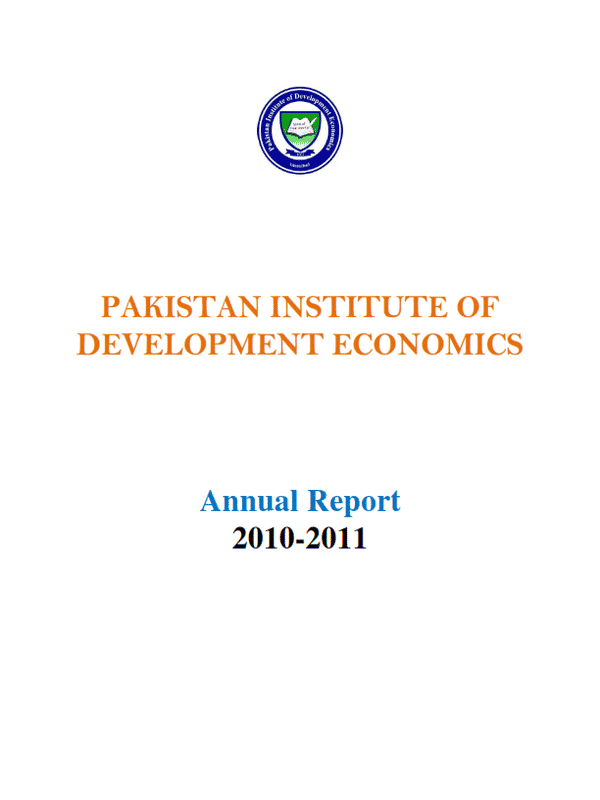PIDE Annual Report 2010-11
As Pakistan advances towards becoming a knowledge society, PIDE continues to make its contribution by providing world class teaching and cutting edge research to realise that goal. In its new role as an internationally recognised research cum teaching Institute, PIDE aspires to produce researchers and graduates who are prepared to contribute to the nation as skilled and knowledgeable individuals. This report reflects how these objectives were pursued at PIDE by giving an overview of the work done during 2010-2011. Excellence in Research The Pakistan Institute of Development Economics research in 2010-11 contributed to providing evidence to inform policy across many research domains, including governance, trade, demographic transition, education, health, agriculture and environment. The research conducted during the year can be divided into seven themes, namely: governance and development; fiscal and monetary policy; capital markets; trade and industrial organisation; growth and environment; agricultural production and markets; and population and poverty dynamics. The PIDE remains committed to maintaining excellence in its research. Each study in the research programme will be peer-reviewed in seminars and through the process of international refereeing involving leading academic experts in the respective fields. This process ensures that the research output is original, meets global academic standards in terms of methodology and content, has high academic and policy relevance, and contributes significantly to the mainstream theoretical and empirical literature. Pakistan’s economy is faced with myriad challenges that require coherent policy responses based on rigorous empirical research and scholarly dialogue. The research output of the PIDE will play a significant role in this critical need by generating cutting-edge knowledge to inform economic policies, as well as stimulate further interest and debate on key development issues.




